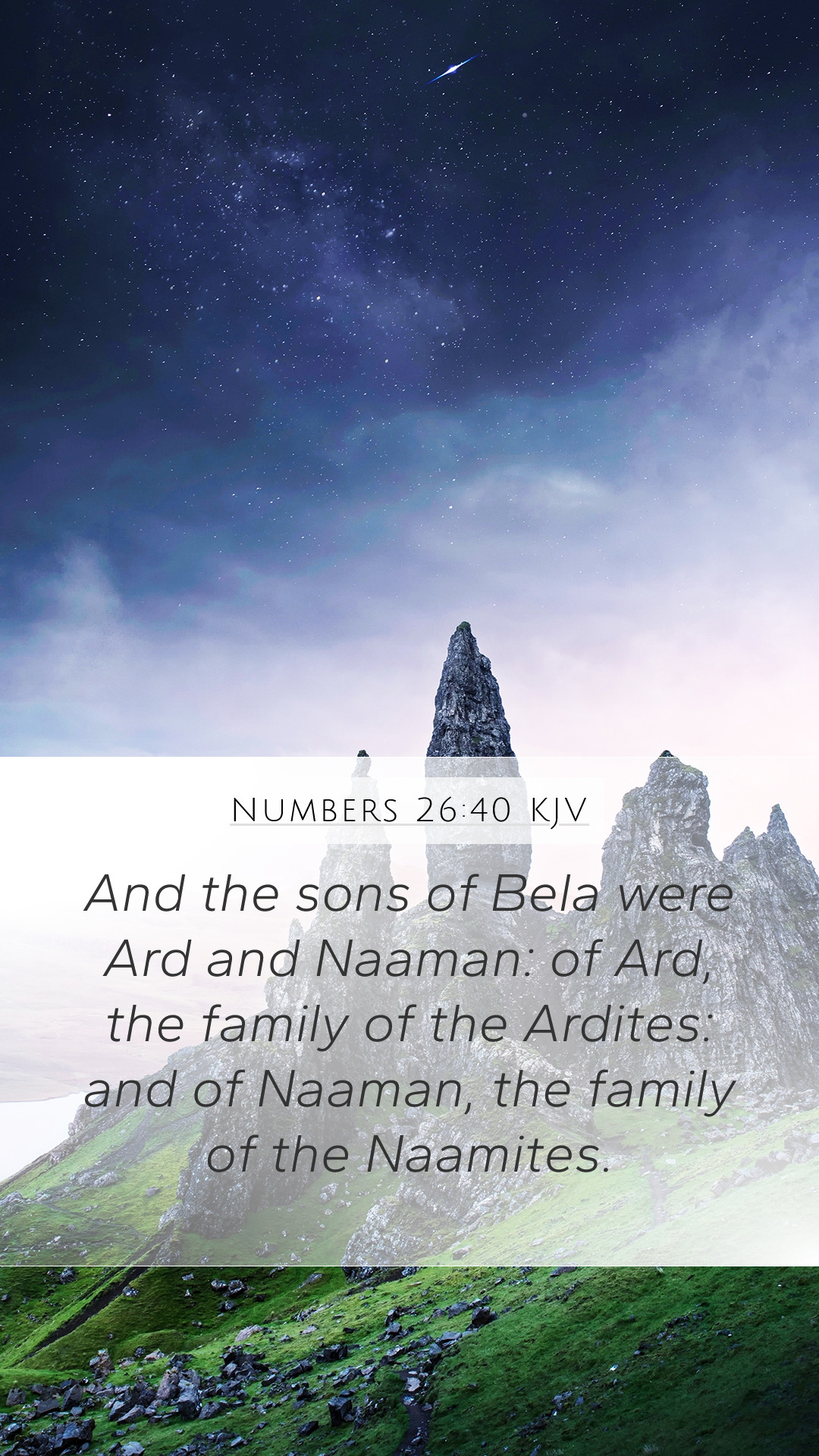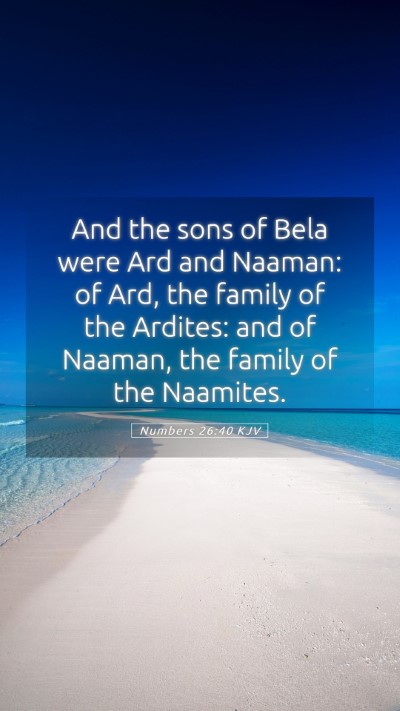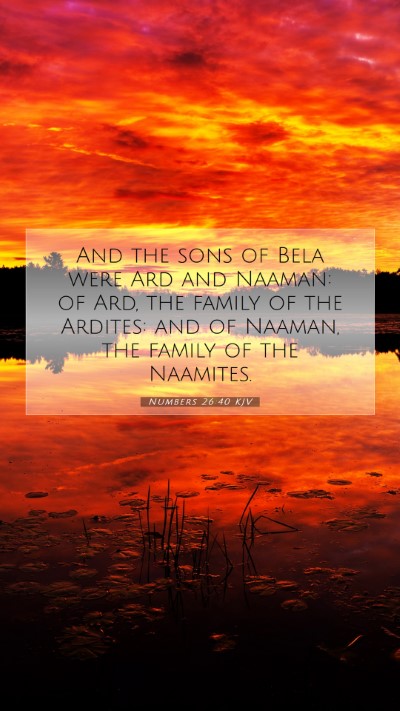Bible Verse Commentary: Numbers 26:40
Verse: Numbers 26:40 - "These are the families of the sons of Manasseh; the families of Manasseh were numbered, and their names were listed according to their families."
Understanding Numbers 26:40
This verse is part of a larger passage in the Book of Numbers that discusses the census taken by Moses in the wilderness. The primary purpose of this census was to determine the tribal lineage and allocate the land of Canaan to the Israelites. Numbers 26:40 specifically mentions the families of Manasseh, one of the sons of Joseph, and denotes the importance of genealogies in understanding the historical context and inheritance rights within the Israelite community.
Insights from Public Domain Commentaries
Matthew Henry's Commentary:
-
Significance of Genealogy: Henry emphasizes the importance of genealogies in Scripture. The families are documented to establish rightful claims and inheritance.
-
Tribal Identity: Each tribe’s identity is grounded in its ancestry, showing God's faithfulness to His promises to the patriarchs, particularly to Joseph.
-
Divine Order: The order of listing signifies a divine structure within Israel’s camp and reflects God's sovereign plan.
-
Lessons for Today: He draws lessons on the importance of knowing one’s heritage and how it shapes community identity.
Albert Barnes' Commentary:
-
Details of the Census: Barnes discusses how the census was essential for various reasons, including military organization and land distribution.
-
Locations of Tribes: He explains that Manasseh was divided into two half-tribes, highlighting the uniqueness of their geographical inheritance.
-
Record-Keeping: The meticulous recording in this census reflects the significance placed on accountability and God's providence among His people.
-
Spiritual Inheritance: Barnes relates the census to the spiritual inheritance believers receive through faith.
Adam Clarke's Commentary:
-
The Legacy of Joseph: Clarke notes Manasseh's legacy as being a fulfillment of God's promise to Joseph, bringing the themes of restoration and blessing into focus.
-
Role of Women: He highlights the mention of noteworthy women in this tribe's lineage, an acknowledgment of their roles in the history of Israel.
-
Cultural Importance: Clarke reflects on how these records were culturally significant, serving as a foundation for identity and community among the Israelites.
-
Connecting Past and Future: He draws a parallel between the historical census and believers today, reminding readers of their own identity in Christ.
Connections and Cross References
This verse correlates with several other key Scripture passages:
- Genesis 48:14-20: Joseph’s blessings upon his sons, Ephraim and Manasseh.
- Joshua 17:1-2: The inheritance of the tribe of Manasseh and the distribution of land.
- Deuteronomy 3:13: The mention of the territories of the half-tribes of Manasseh.
Conclusion
Numbers 26:40 encapsulates the historical and theological significance of genealogies within Scripture. Understanding this verse and its context allows for a deeper grasp of God’s plan for His people. As readers, engaging with passages like this in Bible study groups or through personal study can reveal insights not just about ancient Israel but also about the ongoing narrative of God's faithfulness today.


